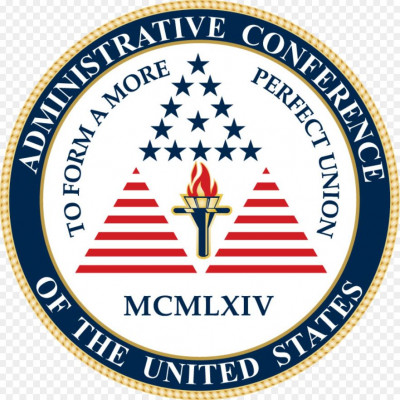December 31, 2017
December 2017 at Policy Integrity:
- Policy Integrity Brief Cited in Housing Rule Decision
- Input on New York Energy Policy
- Legal Briefs on Methane, Student Loan Rules
- New Scholarship on Deregulation in the Trump Era
- In the News: Defining Resilience
- Recommendations on Marketable Permits
- Top Articles of 2017
- Comments on Environmental Rules, Public Health, and Regulatory Rollbacks
-
Policy Integrity Brief Cited in Housing Rule Decision
In a decision ordering the Department of Housing and Urban Development (HUD) to implement a fair housing rule that the Trump administration sought to delay, Chief Judge Beryl A. Howell of the U.S. District Court for the District of Columbia cited Policy Integrity’s amicus brief in the case. The Small Area Fair Market Rent rule, finalized under President Obama, seeks to give low-income families greater access to housing in higher-rent neighborhoods and break up areas of concentrated poverty. Our brief argued that, in suspending the rule’s implementation for two years, HUD violated principles of administrative law by disregarding economic impacts and failing to seek public comment. Judge Howell found that HUD’s decision to delay the rule exceeded the agency’s legal authority and that the reasons it gave for doing so were arbitrary and capricious. She ordered HUD to implement the rule by January 1, 2018.
-
Providing Input on New York State Energy Policy
In December, we offered input on several key New York State energy policy issues. Jeffrey Shrader, Burcin Unel, and Avi Zevin gave a presentation on how to monetize externalities from air pollution before the New York Department of Public Service, in order to inform New York’s development of an improved compensation mechanism for distributed energy resources. Bethany Davis Noll and Shrader were invited to speak at a technical conference on carbon pricing in New York wholesale markets, hosted by state electricity regulators. Additionally, we provided comments on how New York should estimate the impacts on consumer electricity bills from potential retail rate reforms.
-
Legal Briefs on Methane and Student Loan Rules
Our amicus brief to the United States District Court for the District of Wyoming defends the 2016 Bureau of Land Management’s “Waste Prevention Rule,” which is designed to limit methane waste from oil and gas production on public lands. In our brief, we show that the rule reasonably complied with BLM’s statutory duty to set waste-prevention rules that focus on private benefits to industry as well as on the health and environmental benefits of protecting natural public resources and the environment.
Under Secretary Betsy DeVos, the Department of Education has twice delayed implementation of the Borrower Defense Rule, a 2016 regulation designed to help students who have been defrauded by for-profit educational institutions discharge their federal student loans. In our amicus brief supporting borrower and state challenges to the delay, we argue that the Department violated the Administrative Procedure Act by arbitrarily disregarding the harms that the delays impose on student borrowers.
-
New Scholarship on Deregulation in the Trump Era
Federal agencies under President Trump have been aggressively rolling back energy and environmental regulations issued under prior administrations. In their recent article in the Energy Law Journal Bethany Davis Noll and Denise Grab provide an overview of the procedural and statutory rules that govern that process, explaining that the government does not have unfettered freedom to roll back regulations. They also discuss recent examples of agency decisionmaking to show how these limits have been working in practice.
-
In the News: Defining Resilience
In early January, the Federal Energy Regulatory Commission (FERC) will announce its response to the Department of Energy’s (DOE’s) proposal to compensate coal and nuclear plants in the name of “grid resilience.” In an opinion piece in Utility Dive Burcin Unel and Avi Zevin discuss one of the core flaws with this proposal: because it fails to define resilience, DOE’s proposal does not provide FERC the tools to determine whether the grid is sufficiently resilient, or gauge whether payments or other actions might be warranted. The piece discusses existing definitions of resilience, and how those definitions suggest a path forward for FERC.
-

Recommendations on Marketable Permits
The Administrative Conference of the United States (ACUS), an independent federal agency that recommends improvements to government processes and procedures, recently approved a set of recommendations from Policy Integrity’s Jason Schwartz concerning marketable permits. Marketable permits, in the appropriate context, are a powerful tool for achieving policy objectives more efficiently, by letting market participants buy and sell compliance obligations. But like all markets, permit markets require proper oversight to prevent market manipulation. The new recommendations adopted by ACUS provide agencies with best practices on structuring and overseeing marketable permit programs.
-
Top Articles of 2017
The Wall Street Journal recently highlighted an article by Richard Revesz as one of its top five energy posts of 2017. The piece focuses on why coal can’t compete on a truly level playing field. Additionally, the Regulatory Review selected pieces by both Denise Grab and Revesz for its Top 50 Regulatory Essays of 2017. Grab’s essay focuses on Trump’s “alternative economics” of climate change, while Revesz’s essays on both financial regulation and independent agencies were selected.
-
Comments on Environmental Rules, Public Health, and Regulatory Rollbacks
We submitted comments to EPA on its proposed delay of a rule limiting methane emissions from new and modified power plants.
We also submitted comments on the newest problematic attempt to delay the EPA’s Clean Water Rule.
Our comments on Arctic drilling to the Bureau of Ocean Energy Management discuss how the agency should consider climate damages in its environmental impact assessment for an Arctic oil drilling site.
Our comments to the Department of Human Health Services focus on the economic costs of expanding the number of organizations exempt from providing contraception through health insurance.
Our comments to the Federal Drug Administration, the Customs and Border Protection Bureau, and other agencies argue that their ongoing review of past regulations should consider the public benefits of regulation, not just the costs to regulated industries.





